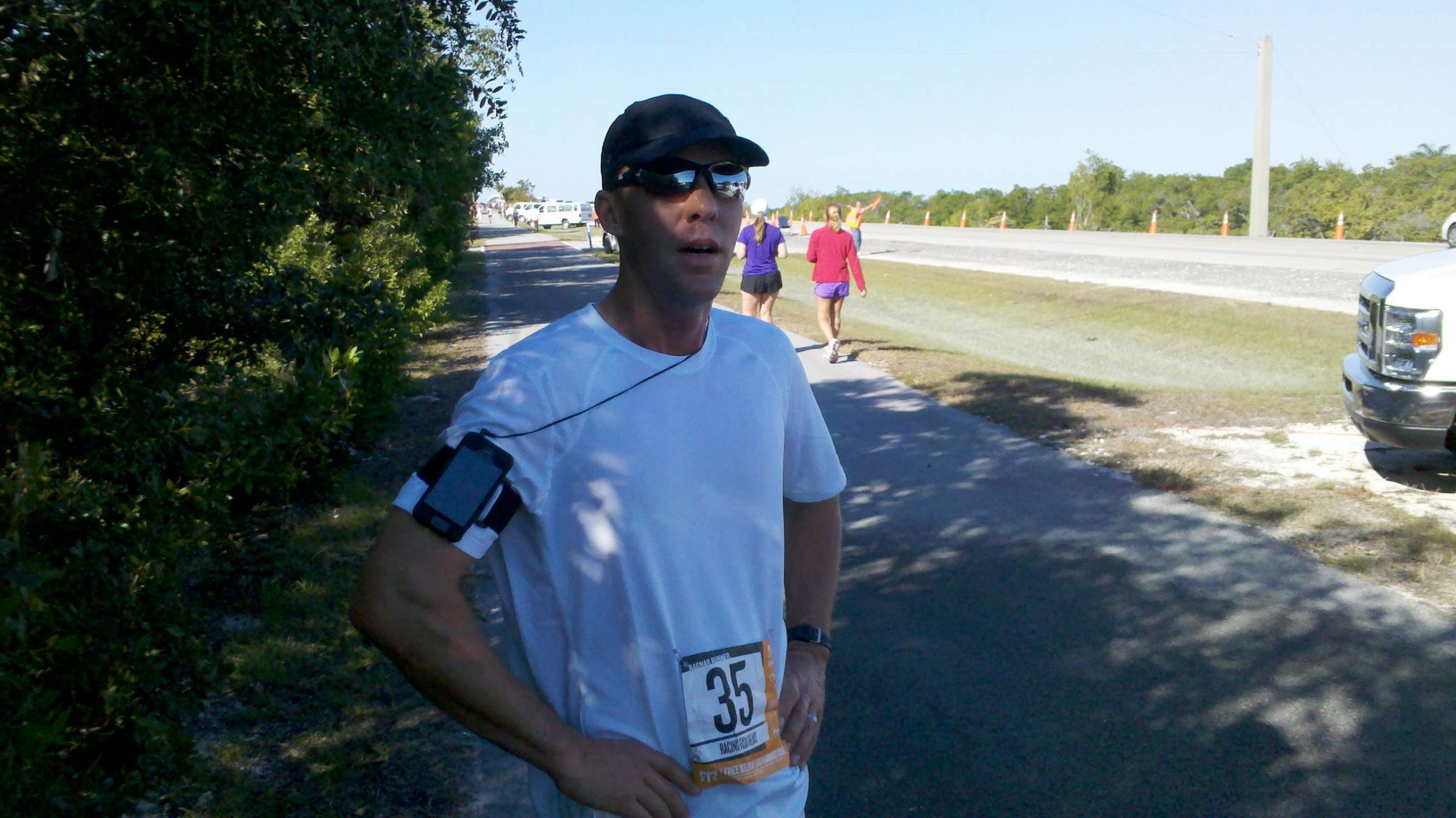
Bassmaster Elite Series pro Aaron Martens of Leeds, Ala., triumphed last week in his debut as a marathon relay runner. Not that his team won, but in an overland race from Miami to Key West, Fla., finishing is cause enough to celebrate.
“The whole thing was awesome,” Martens said after the Jan. 6-7 Ragnar Relay. “It was everything I expected and more.”
Martens was a member of the Racing Fish Heads team, which finished in the top third of a 493-team field. Racing Fish Heads’ total time was 30 hours, 45 minutes, an average of 9 minutes and 18 seconds per mile over the 199-mile course, according to team captain and experienced runner Eric Lopez, who is also director of site operations for B.A.S.S. The team’s runners also included Ben Ashby, B.A.S.S. operations manager, and Martens’ nephew, Justin Martens. (Another team in the same event included Martens’ wife, Leslie, and Robin Howell, wife of Elite pro Randy Howell of Springville, Ala.)
Praising the entire team, Lopez singled out Martens as a big contributor to their success. Martens, said Lopez, ran three segments that added up to 21 miles, a mile more than even Lopez himself ran. Martens tackled the most difficult segment. It was 11.8 miles long, had to be run in the dark, over a bridge. No van support was allowed on the segment.
“Aaron was hard-core,” Lopez said. “He had the run of his life.”
On his own for the 11.8-mile stretch, Martens carried a 16-ounce bottle of water (he finds hydration packs irritating), and tucked packets of a nutrition supplement into his running clothes. He said he had to eat as well as drink during the segment or he would not have made it.
“I can’t run for an hour, hour and a half, without eating. I burn too many calories.”
He averaged 8 1/2 minutes a mile.
“The bridge slowed me down,” he said, “but everything worked out perfectly.”
A well-conditioned mountain biker when he lived in California, Martens began to train as a runner in July after the 2011 Bassmaster Elite Series postseason was over. He ran every other day, then stepped up the pace to running every day in the month before the Ragnar race. At first, about 3 miles was the most he could do. He gradually pushed it to eight or nine. He fought flare-ups of his old nemesis, plantar fasciitis, but he stuck to his regimen.
The training and the race sharpened his competitive edge, built his physical stamina and left him lean. Those results will pay off at the top levels of competitive fishing, the 39-year-old angler said.
“It is hard on your body, fishing for a living,” he said. “Your body gets out of balance (casting from a boat deck all day). With running, I’m trying to make up for that. When I won Toyota Tundra Angler of the Year in 2005, I was a mountain biker. I was really healthy that year. You’re quicker, you feel better, and you’re more efficient. Feeling like that again really helps.”
